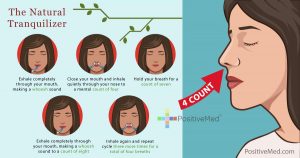magine you are a doctor and you want to diagnose a patient with a serious disease, such as COVID-19, tuberculosis, or leukemia. You could use a blood test or an X-ray to look for signs of the disease, but sometimes these tests are not very accurate or fast. You could also use a computer program that can analyze the data from the tests and compare it with other data from thousands of patients around the world. This could help you find the best diagnosis and treatment for your patient.
But there is a problem: sharing medical data with other people or organizations is not always allowed, because it can violate the privacy and confidentiality of the patients. Privacy laws protect patients’ personal information from being misused or stolen by hackers, advertisers, or criminals. For example, if someone knows that you have a certain disease, they might discriminate against you, harass you, or blackmail you. So how can you use the power of computer programs to diagnose diseases without breaking privacy laws?
A group of researchers has found a solution: they have developed a new way of using computer programs that they call Swarm Learning. Swarm Learning is different from other methods because it does not need a central coordinator or server to collect and analyze the data. Instead, it uses a network of computers that communicate with each other using a secure and encrypted system called the blockchain. Blockchain is like a digital ledger that records every transaction and action that happens on the network, and it is very hard to tamper with or hack.
Swarm Learning works like this: each computer on the network has its own data and its own copy of the computer program. Computers can exchange information with each other, but they do not reveal their data to anyone else. They only share the results of their analysis, which are combined with the results from other computers to create a better diagnosis. This way, Swarm Learning can use the data from many sources without compromising the privacy and confidentiality of the patients.
The researchers have tested Swarm Learning on four different diseases: COVID-19, tuberculosis, leukemia, and lung pathologies. They have used data from more than 16,400 blood samples and more than 95,000 chest X-rays from 127 different studies around the world. They have found that Swarm Learning can diagnose these diseases better than using data from one source alone. They have also shown that Swarm Learning can adapt to new situations and learn from new data without needing a central coordinator.
Swarm Learning is a promising technology that could revolutionize the field of precision medicine. Precision medicine is an approach that aims to provide personalized diagnosis and treatment for each patient based on their genetic, environmental, and lifestyle factors. Swarm Learning could help doctors and researchers access and analyze large amounts of medical data without violating privacy laws or risking data breaches. This could lead to faster and more accurate diagnosis and treatment of diseases and a better understanding of their causes and mechanisms.
Swarm Learning is not only useful for medicine, but also for other fields that deal with sensitive data, such as finance, security, or education. Swarm Learning could enable collaboration and innovation across different domains and regions without compromising privacy and confidentiality. Swarm Learning could also empower individuals and communities to control their own data and participate in collective decision making.
Swarm Learning is an exciting example of how artificial intelligence can be used for good. However, it also comes with some challenges and risks that need to be addressed. For example, how can we ensure that Swarm Learning is fair and ethical? How can we prevent misuse or abuse of Swarm Learning by malicious actors? How can we balance the benefits of Swarm Learning with the potential harms to society? These are some of the questions we need to consider as we explore the possibilities of Swarm Learning.





